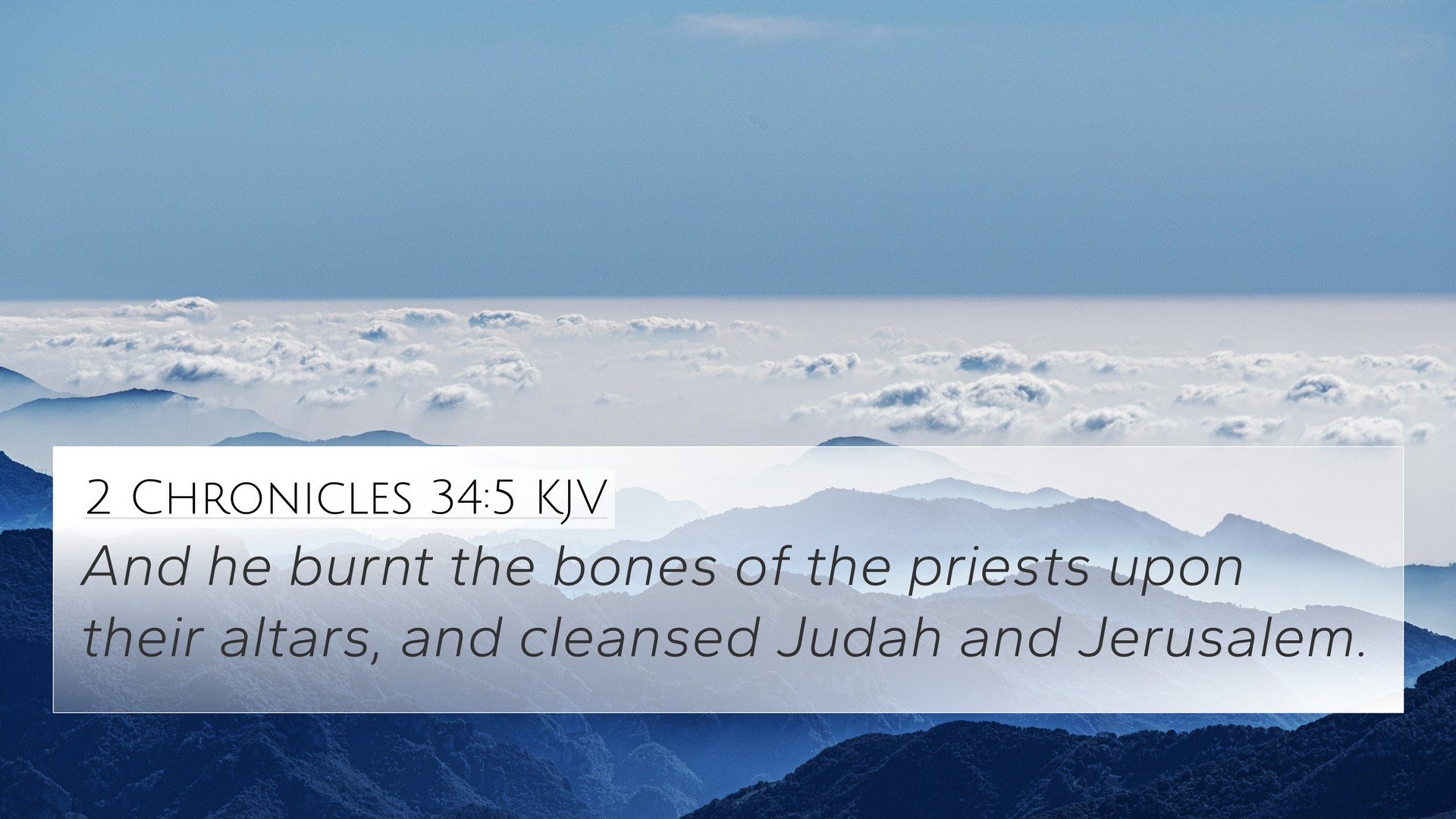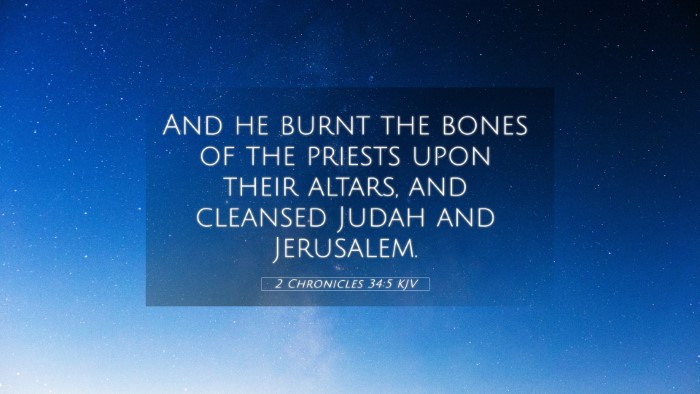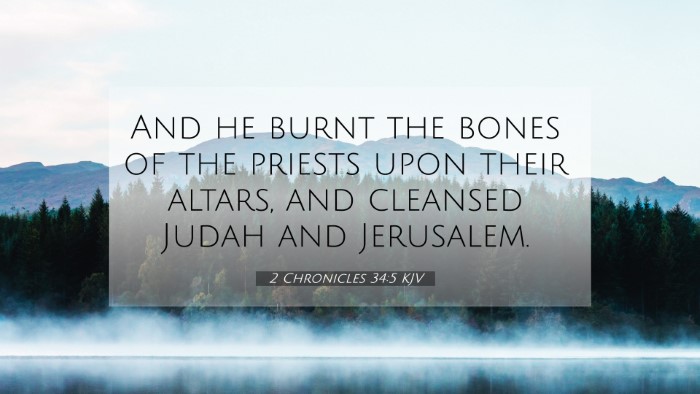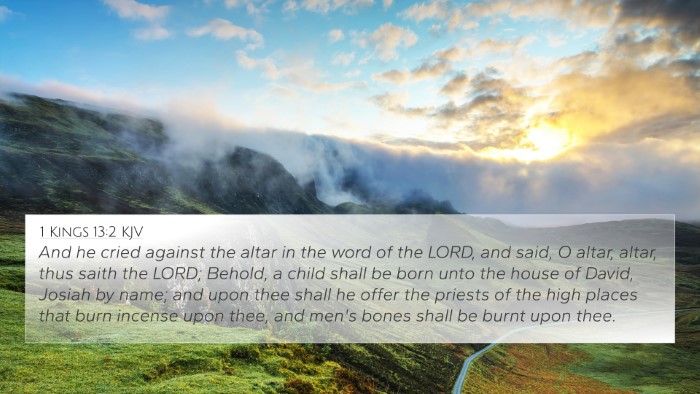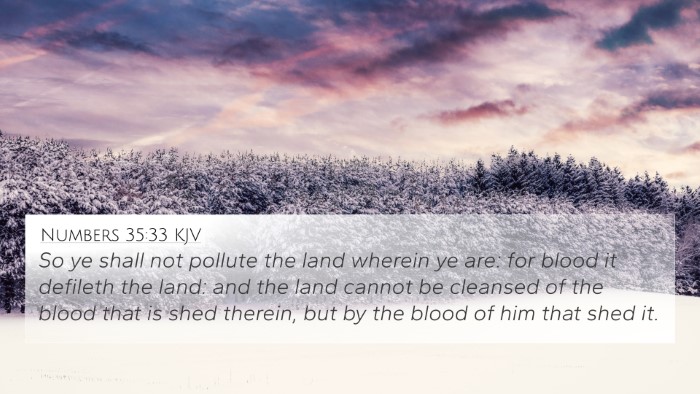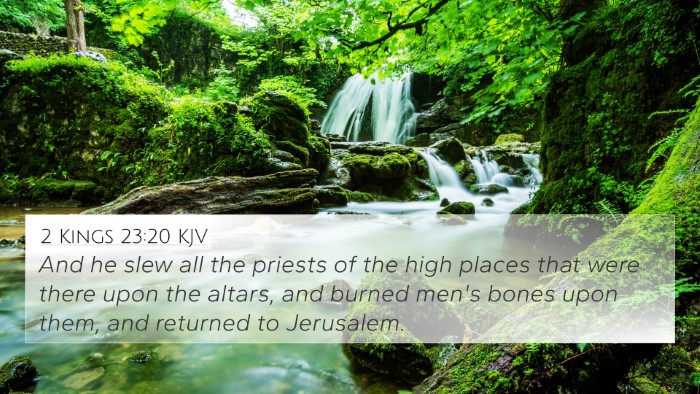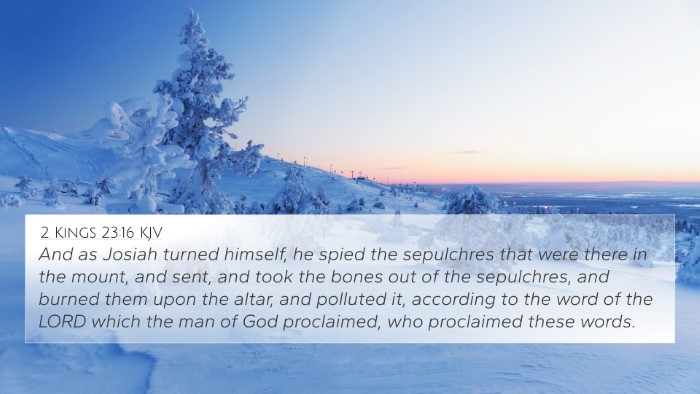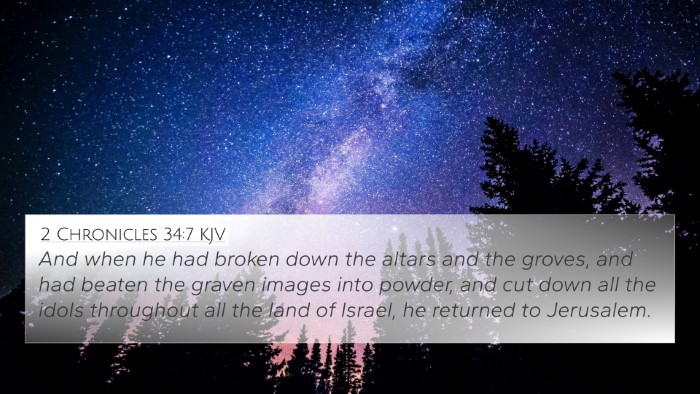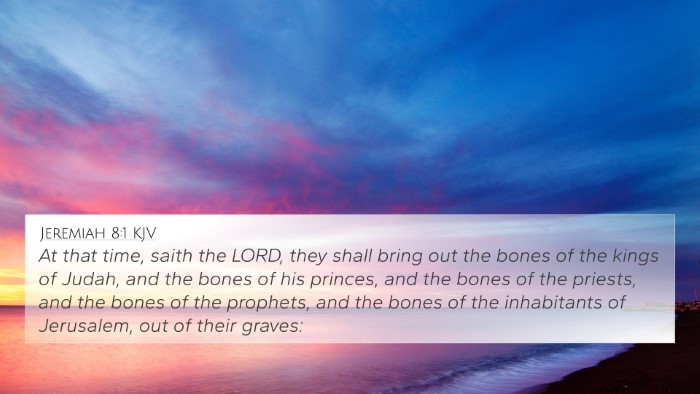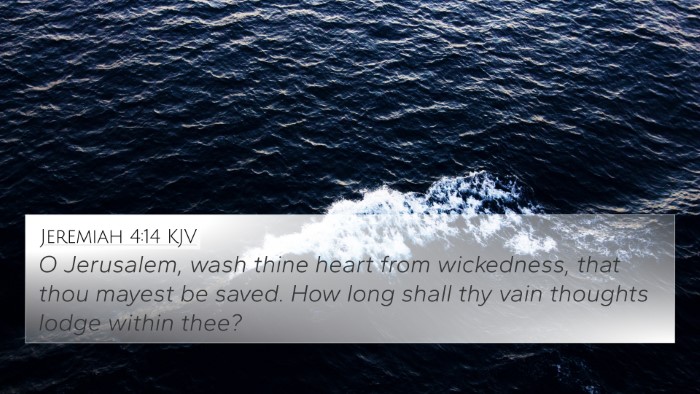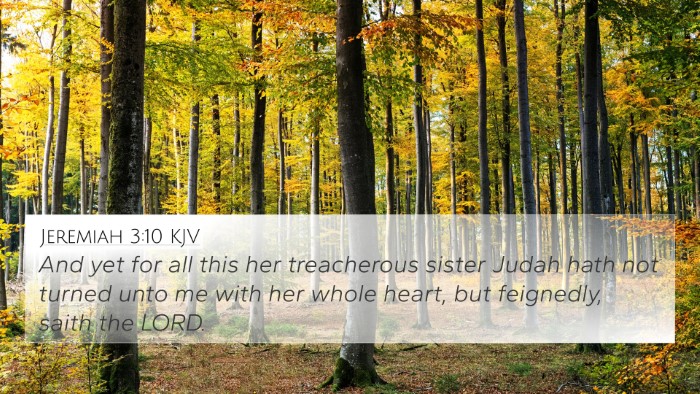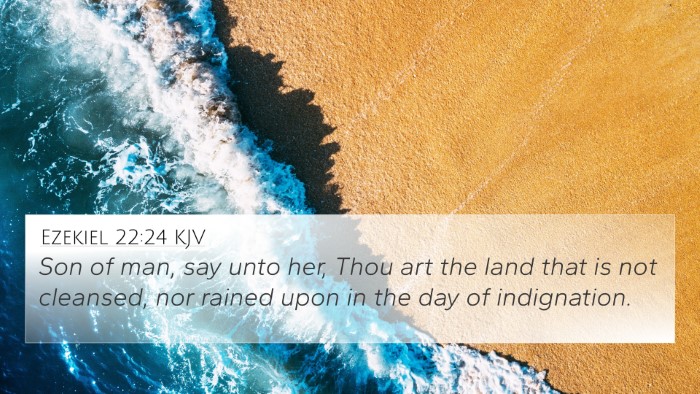Understanding 2 Chronicles 34:5
In the verse 2 Chronicles 34:5, we read: "He also burned the bones of the priests on their altars and cleansed Judah and Jerusalem." This part of scripture, while concise, encapsulates significant theological and historical implications regarding King Josiah's purification of Israel's worship practices.
Summary of the Verse
This verse highlights a moment when King Josiah, in his zealous efforts to restore true worship, eradicates idolatrous practices by desecrating the altars of foreign gods and purging the land of corrupt priests who led the people away from Yahweh. The act of burning the bones of the priests signifies both a direct assault on idol worship and a profound commitment to the Lord's commandments.
Commentary Insights
-
Matthew Henry's Commentary:
Matthew Henry elaborates on how this act signified Josiah's complete purge of idolatry. He emphasizes the importance of obedience to God's laws, since the actions taken were part of a broader covenant renewal under Josiah's reign. This purification process aligns with the prophetic call to holiness and right worship.
-
Albert Barnes' Notes:
Albert Barnes provides insights into the historical context, explaining that the burning of the bones on the altars was a strong statement against the worship of false gods. He draws connections to the Deuteronomic laws which categorically condemn such practices, thereby reinforcing the seriousness of Josiah’s reforms.
-
Adam Clarke's Commentary:
Adam Clarke discusses the implications of such actions on a national scale, interpreting Josiah’s reign as a pivotal moment that demonstrated strong leadership devoted to God. Clarke captures the essence of reformative zeal, suggesting that when leaders prioritize divine laws, communities experience restoration and cleansing from sin.
Thematic Connections
This verse can be seen as part of a broader narrative within the scriptures that focuses on themes of repentance, restoration, and idolatry:
- Deuteronomy 12:2-4: Instructions to destroy places of idol worship.
- 2 Kings 23:16: A parallel account of Josiah's reforms.
- Jeremiah 1:16: Prophetic condemnation of idolatrous practices.
- 1 Kings 13:2: Prophecy against idol worship that is referenced in Josiah’s actions.
- Hebrews 9:22: The principle that without the shedding of blood there is no remission, reflecting the seriousness of sins addressed in the Old Testament context.
- Isaiah 1:16-17: An exhortation to cleanse oneself from wicked deeds.
- 1 Chronicles 28:9: Call to serve the Lord wholeheartedly.
Cross-Referencing This Verse
Understanding 2 Chronicles 34:5 is enriched by cross-referencing with other Bible verses that provide thematic and contextual parallels:
- Connection to 2 Kings 23:20: Josiah executes the priests of the high places.
- Relation to 2 Kings 22:2: Josiah’s commitment to follow the Lord and keep His commandments.
- Links with 1 Samuel 15:22-23: The importance of obedience over burnt offerings.
- Comparison with Psalm 106:34-39: Warnings against following foreign practices.
Tools for Cross-Referencing
To further study this verse and its implications, utilizing tools and resources such as:
- Bible concordance to identify key terms related to purification and idolatry.
- Bible cross-reference guide to trace thematic connections across the scriptures.
- Comprehensive Bible cross-reference materials for sermon preparation and study.
Conclusion
2 Chronicles 34:5 serves as a crucial verse in understanding the heart of a leader committed to the worship of God. By purging idolatrous elements, King Josiah reaffirmed the covenant between God and His people, reflecting the overarching narrative of restoration found within the scriptures. As we explore and cross-reference this scripture, we unveil the rich tapestry of connections that define the biblical text, revealing the centrality of God’s holiness and the call to align our lives with His will.
Further Study Recommendations
For those interested in a deeper exploration of cross-referencing Bible verses, consider the following:
- How to find cross-references in the Bible for personal study.
- Identifying connections between Old and New Testament teachings.
- Utilizing cross-reference study methods for comprehensive biblical research.
- Investigating cross-referenced themes in the Bible for sermon preparation.
